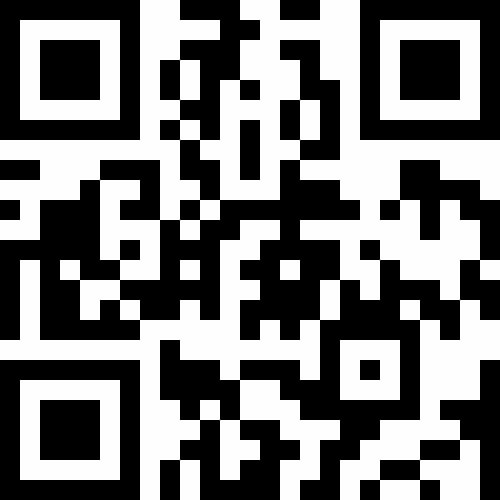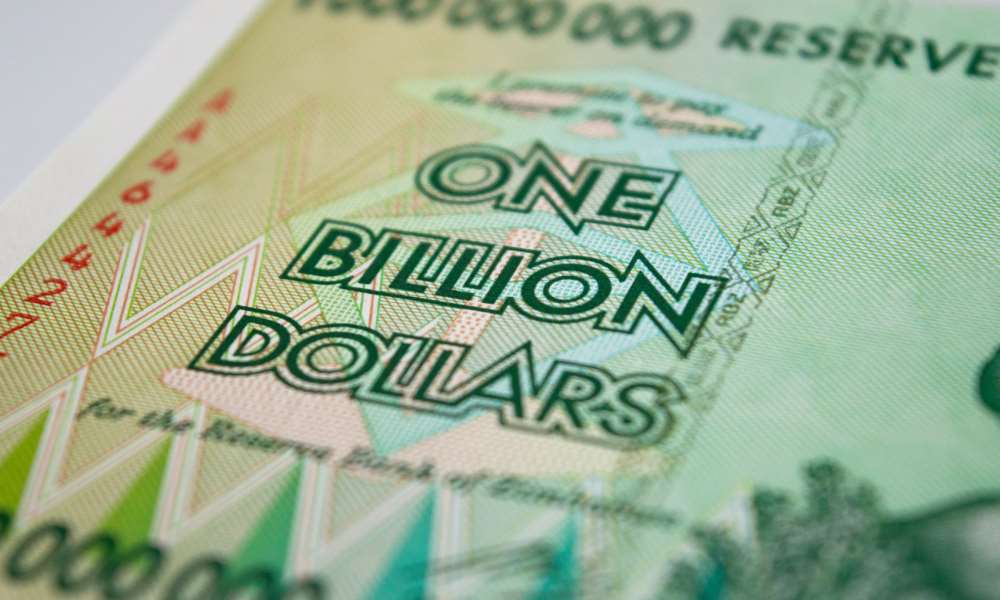Zim heads to the polls amid economic woes
Currency plunges, inflation doubles
Stubbornly high inflation and its negative impact on the value of the Zimbabwe dollar are symptoms of much deeper problems rooted in decades of fiscal and central bank governance weaknesses. Jonathan Munemo, professor of economics, at Salisbury University in the US, analyses the issue.
Zimbabwe is facing a host of pressing challenges that voters dearly want the next president to address: persistently high inflation, elevated interest rates, and a slumping and volatile Zimbabwe dollar have combined to fuel a cost of living crisis for households and battered business activity.
These will be among the key economic concerns weighing on Zimbabweans as they prepare to cast their votes at elections scheduled for next Wednesday, 23 August.
President Emmerson Mnangagwa is campaigning to secure a second mandate that will extend his five-year term in power. He will square off against 10 presidential candidates, including the opposition’s main candidate Nelson Chamisa.
Price monster, interest rates
Inflation remains sticky and jumped 175.8% in June from 86.5% a month ago.
Part of the recent re-acceleration in inflation was triggered by the Zimbabwe dollar’s slide, which plunged 85% in the two months through May and pushed up import costs.
Although inflation edged lower in July, it still remains significantly elevated.
The central bank responded by hiking interest rates to 150% from a previously elevated level of 140%.
This move intensifies the pullback on business and consumer spending caused by currency weakening. Additionally, the high pace of price growth has outpaced nominal wage growth, leaving many people struggling to afford everyday essentials. Fewer jobs add to these concerns.
Stubbornly high inflation and its negative impact on the value of the Zimbabwe dollar are symptoms of much deeper problems rooted in decades of fiscal and central bank governance weaknesses.
That’s why inflation has defied central bank efforts to rein it in with a series of aggressive rate hikes.
The next president will therefore need to push for reforms in governance to tackle deep underlying problems. Otherwise the country will remain locked in a seemingly endless battle to ward off the economic crisis that is being acutely felt by voters.
Governance vulnerabilities
Governance broadly refers to institutions used to exercise authority by the government.
Long-running weaknesses in fiscal and central bank governance institutions have undermined the capacity of the government to effectively formulate and implement sound fiscal and monetary policies for many years.
Between 2005 and 2008 for example, the government pursued an expansionary fiscal policy. Public spending averaged 8% of gross domestic product (GDP).
However, because of weak budgetary processes, spending was less efficient especially in areas critical for supporting stronger growth such as education, health, and public infrastructure.
This meant that the economy could not generate more government revenue. Average government revenue collected was only about 5% of GDP over this period.
The budget shortfalls were financed by printing money, which undermined the independence and credibility of the central bank. This impaired the central bank’s ability to fulfil its mandate, including supporting price stability.
Printed money
The influx of printed cash in the economy fanned domestic demand but did nothing to spur the production of goods and services to meet it. Inflation spiked and drove the value of the currency lower, raising the cost of imported goods and thus amplifying inflation pressures.
This dynamic created a feedback loop in which rising inflation and a weakening currency reinforced each other. The result was hyperinflation.
In 2008 inflation reached 231 million percent, prompting the government to withdraw the weakening Zimbabwe dollar from circulation the following year and to replace it with the US dollar to combat hyperinflation.
In the years following the switch to the US dollar, inflation receded until 2019 when the Zimbabwe dollar was re-introduced. This was done without fixing vulnerabilities in fiscal and monetary governance that had eventually led to the demise of the Zimbabwe dollar in 2009.
Because of these vulnerabilities, inflation skyrocketed to 255% in 2019 – a 23-fold increase from a year earlier as money supply growth quickened from 28% to 250% amid a widening government budget deficit which topped 10% of GDP in 2017.
Since then, the central bank has not been able to get a sustained deceleration in inflation despite aggressive rate hikes.
Feedback loop
And the negative feedback loop between high inflation and a collapsing local currency was on full display again following the plunge in the currency in recent months.
This has made the US dollar more attractive, and it is used more widely to pay for everything from food, fuel, school fees, rent and other services. In February the central bank adopted a new inflation gauge that tracks prices in both Zimbabwean and US dollars to capture this reality.
The US dollar is also seen as a haven which has taken on greater importance as inflation remains stubbornly high.
In many ways, the return of the Zimbabwe dollar evokes bad memories of the inflation crisis of 2008 which still loom large for many people.
Corruption
Weaknesses in governance also create opportunities for higher levels of government corruption, which can lead to public spending waste, inefficiencies and lower revenue collection.
All worsen budget deficits and add to monetary financing pressures on a central bank lacking independence.
In 2022, Transparency International ranked Zimbabwe 157 out of 180 countries based on perceived levels of public sector corruption, where the lower the rank the higher the perceived corruption. The evidence also showed no significant progress in tackling corruption for more than a decade.
Another 2022 survey by Afrobarometer revealed that a staggering 87% of Zimbabweans believe corruption has increased or stayed the same.
A path forward
Zimbabwe’s economy is facing a confluence of challenges: inflation that won’t go away, higher interest rates and a sliding currency.
The fallout has included a cost of living crisis, slowing business activity and fewer jobs. These problems are symptoms of deeply embedded structural weaknesses in the economy.
The following reforms are crucial for addressing these structural weaknesses:
Fiscal governance reforms to strengthen the budgetary process.
This will enhance revenue collection and increase the efficiency of government spending. These reforms should also aim to boost revenue collection by lowering pervasive informality in the economy.
Central bank governance reforms to promote autonomy of the bank’s operations, including monetary policy independence which is important for preserving price stability.
In addition, good fiscal governance positively affects central bank governance by reducing the need for central bank financing, which allows a reduction in inflation. – The Conversation
These will be among the key economic concerns weighing on Zimbabweans as they prepare to cast their votes at elections scheduled for next Wednesday, 23 August.
President Emmerson Mnangagwa is campaigning to secure a second mandate that will extend his five-year term in power. He will square off against 10 presidential candidates, including the opposition’s main candidate Nelson Chamisa.
Price monster, interest rates
Inflation remains sticky and jumped 175.8% in June from 86.5% a month ago.
Part of the recent re-acceleration in inflation was triggered by the Zimbabwe dollar’s slide, which plunged 85% in the two months through May and pushed up import costs.
Although inflation edged lower in July, it still remains significantly elevated.
The central bank responded by hiking interest rates to 150% from a previously elevated level of 140%.
This move intensifies the pullback on business and consumer spending caused by currency weakening. Additionally, the high pace of price growth has outpaced nominal wage growth, leaving many people struggling to afford everyday essentials. Fewer jobs add to these concerns.
Stubbornly high inflation and its negative impact on the value of the Zimbabwe dollar are symptoms of much deeper problems rooted in decades of fiscal and central bank governance weaknesses.
That’s why inflation has defied central bank efforts to rein it in with a series of aggressive rate hikes.
The next president will therefore need to push for reforms in governance to tackle deep underlying problems. Otherwise the country will remain locked in a seemingly endless battle to ward off the economic crisis that is being acutely felt by voters.
Governance vulnerabilities
Governance broadly refers to institutions used to exercise authority by the government.
Long-running weaknesses in fiscal and central bank governance institutions have undermined the capacity of the government to effectively formulate and implement sound fiscal and monetary policies for many years.
Between 2005 and 2008 for example, the government pursued an expansionary fiscal policy. Public spending averaged 8% of gross domestic product (GDP).
However, because of weak budgetary processes, spending was less efficient especially in areas critical for supporting stronger growth such as education, health, and public infrastructure.
This meant that the economy could not generate more government revenue. Average government revenue collected was only about 5% of GDP over this period.
The budget shortfalls were financed by printing money, which undermined the independence and credibility of the central bank. This impaired the central bank’s ability to fulfil its mandate, including supporting price stability.
Printed money
The influx of printed cash in the economy fanned domestic demand but did nothing to spur the production of goods and services to meet it. Inflation spiked and drove the value of the currency lower, raising the cost of imported goods and thus amplifying inflation pressures.
This dynamic created a feedback loop in which rising inflation and a weakening currency reinforced each other. The result was hyperinflation.
In 2008 inflation reached 231 million percent, prompting the government to withdraw the weakening Zimbabwe dollar from circulation the following year and to replace it with the US dollar to combat hyperinflation.
In the years following the switch to the US dollar, inflation receded until 2019 when the Zimbabwe dollar was re-introduced. This was done without fixing vulnerabilities in fiscal and monetary governance that had eventually led to the demise of the Zimbabwe dollar in 2009.
Because of these vulnerabilities, inflation skyrocketed to 255% in 2019 – a 23-fold increase from a year earlier as money supply growth quickened from 28% to 250% amid a widening government budget deficit which topped 10% of GDP in 2017.
Since then, the central bank has not been able to get a sustained deceleration in inflation despite aggressive rate hikes.
Feedback loop
And the negative feedback loop between high inflation and a collapsing local currency was on full display again following the plunge in the currency in recent months.
This has made the US dollar more attractive, and it is used more widely to pay for everything from food, fuel, school fees, rent and other services. In February the central bank adopted a new inflation gauge that tracks prices in both Zimbabwean and US dollars to capture this reality.
The US dollar is also seen as a haven which has taken on greater importance as inflation remains stubbornly high.
In many ways, the return of the Zimbabwe dollar evokes bad memories of the inflation crisis of 2008 which still loom large for many people.
Corruption
Weaknesses in governance also create opportunities for higher levels of government corruption, which can lead to public spending waste, inefficiencies and lower revenue collection.
All worsen budget deficits and add to monetary financing pressures on a central bank lacking independence.
In 2022, Transparency International ranked Zimbabwe 157 out of 180 countries based on perceived levels of public sector corruption, where the lower the rank the higher the perceived corruption. The evidence also showed no significant progress in tackling corruption for more than a decade.
Another 2022 survey by Afrobarometer revealed that a staggering 87% of Zimbabweans believe corruption has increased or stayed the same.
A path forward
Zimbabwe’s economy is facing a confluence of challenges: inflation that won’t go away, higher interest rates and a sliding currency.
The fallout has included a cost of living crisis, slowing business activity and fewer jobs. These problems are symptoms of deeply embedded structural weaknesses in the economy.
The following reforms are crucial for addressing these structural weaknesses:
Fiscal governance reforms to strengthen the budgetary process.
This will enhance revenue collection and increase the efficiency of government spending. These reforms should also aim to boost revenue collection by lowering pervasive informality in the economy.
Central bank governance reforms to promote autonomy of the bank’s operations, including monetary policy independence which is important for preserving price stability.
In addition, good fiscal governance positively affects central bank governance by reducing the need for central bank financing, which allows a reduction in inflation. – The Conversation





Kommentar
Allgemeine Zeitung
Zu diesem Artikel wurden keine Kommentare hinterlassen